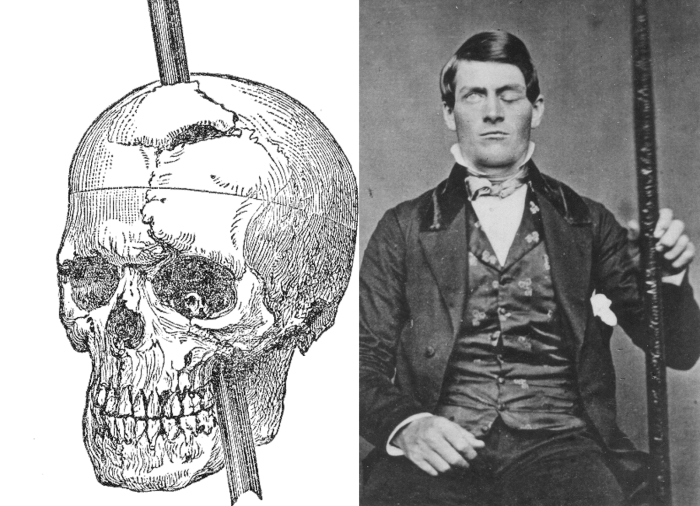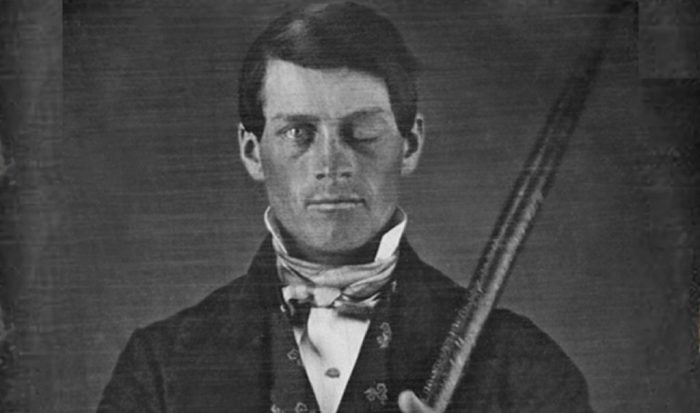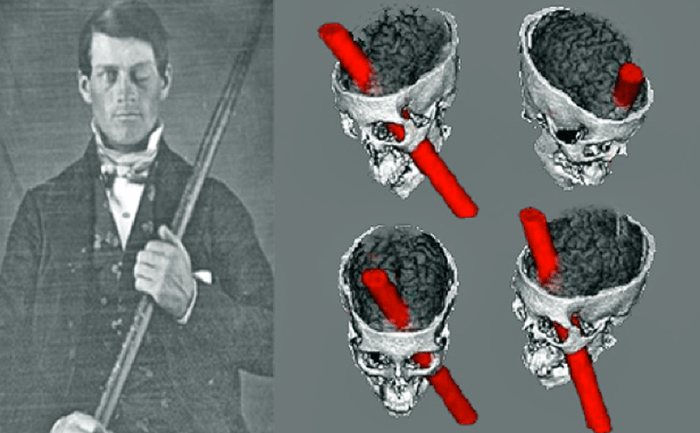Was Phineas Gage lucky or unlucky? This question has captivated scientists, historians, and the general public for over a century. Gage’s extraordinary case, in which an iron rod pierced his frontal lobe, provides a unique lens through which to explore the complex relationship between brain injury, personality, and fortune.
Phineas Gage’s accident and its aftermath offer a wealth of insights into the human brain’s resilience and adaptability. This essay will delve into the nature of Gage’s injury, the transformation of his personality, and the ethical implications of his story, ultimately seeking to answer the question of whether Gage’s experience was a stroke of luck or a tragic misfortune.
Phineas Gage’s Injury and Recovery: Was Phineas Gage Lucky Or Unlucky
Phineas Gage, a railroad construction foreman, suffered a catastrophic accident in 1848 when a tamping iron rod was propelled through his skull. The rod entered his left cheek and exited through the top of his head, destroying much of his left frontal lobe.
Miraculously, Gage survived the accident, but he was profoundly changed both physically and cognitively.
The immediate physical effects of the accident included severe facial injuries, vision loss in his left eye, and impaired balance and coordination. Gage also experienced significant cognitive deficits, including memory loss, difficulty concentrating, and impaired judgment. He became impulsive and prone to outbursts of anger, a stark contrast to his pre-accident demeanor.
Despite the severity of his injuries, Gage received surprisingly little medical treatment. He was initially treated by a local physician who removed the rod and dressed his wounds. However, Gage did not receive any formal rehabilitation or therapy.
The Transformation of Gage’s Personality

Following the accident, Gage’s personality underwent a profound transformation. He became known for his impulsivity, lack of social graces, and poor decision-making. He lost his job and struggled to maintain relationships.
Theories regarding the connection between the frontal lobe damage and these personality changes have focused on the role of the frontal lobe in executive functions, such as planning, decision-making, and impulse control. Damage to this area can disrupt these functions, leading to the observed changes in Gage’s behavior.
Gage’s Legacy and Impact

Gage’s case is considered a watershed moment in the history of neuroscience. It provided the first clear evidence that damage to specific brain regions could lead to profound personality changes.
Gage’s story has also raised ethical questions about the use of brain injury research. Some argue that it is unethical to study individuals with brain injuries without their consent, while others maintain that such research can provide valuable insights into the workings of the brain.
Perspectives on Gage’s Fortune

There are two main perspectives on whether Gage was lucky or unlucky to survive his accident.
One view is that Gage was lucky to survive such a severe injury. He was able to live a relatively long life (he died 12 years after the accident) and, despite his personality changes, he was able to function in society.
The other view is that Gage was unlucky to have survived the accident. His personality changes made it difficult for him to maintain relationships and hold a job. He also suffered from seizures and other health problems.
Comparison with Similar Cases

There have been other historical cases of individuals with severe brain injuries that have resulted in personality changes.
One example is Charles Whitman, who in 1966 went on a shooting rampage at the University of Texas at Austin, killing 16 people. Whitman had a tumor in his frontal lobe that is believed to have contributed to his violent behavior.
Another example is Jeffrey Dahmer, who was convicted of murdering 17 men and boys. Dahmer had a history of head injuries, and some experts believe that these injuries may have contributed to his antisocial behavior.
Questions and Answers
Was Phineas Gage’s injury considered fatal at the time?
Despite the severity of his injury, Phineas Gage survived, defying the medical expectations of the time.
How did Gage’s personality change after the accident?
Gage’s personality became more impulsive, irresponsible, and socially inappropriate, a stark contrast to his pre-injury demeanor.
What are the ethical implications of Gage’s case?
Gage’s story raises important questions about the use of brain injury research and the need to balance scientific advancement with the protection of human subjects.